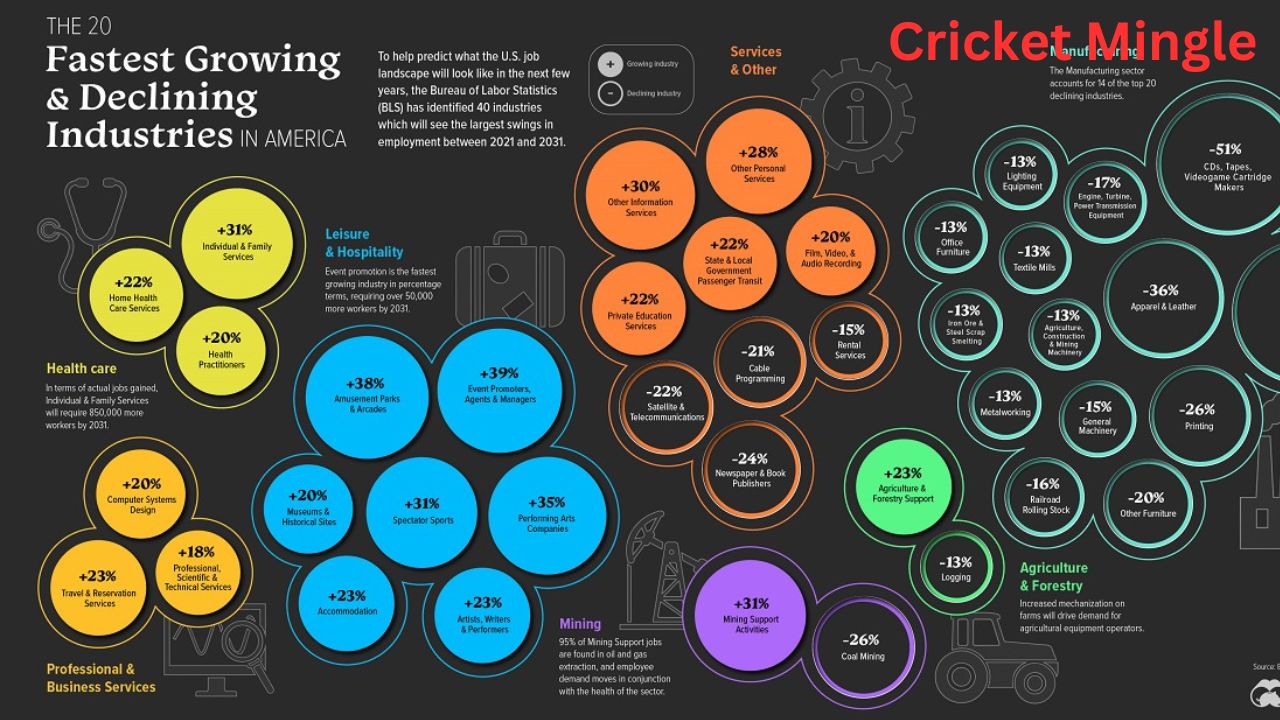Introduction
Unskilled jobs are a vital component of the US economy, providing millions with employment opportunities. Whether you’re a high school student entering the workforce for the first time or someone seeking a career change, unskilled jobs offer a gateway into various industries. However, understanding how much these jobs pay is crucial for anyone considering this path.
What are Unskilled Jobs?
Definition of Unskilled Labor
Unskilled jobs typically require no formal education or specialized training. These roles are often entry-level positions where on-the-job training is provided. While they may not demand specific skills, these jobs are essential for the daily functioning of various industries.
Common Sectors Employing Unskilled Workers
Unskilled labor is found in several sectors, including retail, food service, janitorial services, and warehousing. These industries rely on unskilled workers to perform tasks that, while not requiring specialized skills, are critical to their operations.
Factors Influencing Pay for Unskilled Jobs
Geographic Location
One of the most significant factors affecting pay for unskilled jobs is geographic location. For example, wages in metropolitan areas like New York City or San Francisco are typically higher than in rural regions due to the higher cost of living.
Industry Demand
Certain industries, such as construction or healthcare, may offer higher wages for unskilled positions due to demand. When there’s a shortage of workers, employers are often willing to pay more to attract and retain staff.
Minimum Wage Laws
Federal and state minimum wage laws also play a critical role in determining the pay for unskilled jobs. States with higher minimum wages will naturally have higher average pay for these roles.
Average Pay for Unskilled Jobs in the USA
National Average Wage for Unskilled Jobs
On average, unskilled jobs in the USA pay between $10 to $15 per hour. This can vary widely depending on factors like location, industry, and employer.
Regional Variations in Wages
Wages for unskilled jobs vary significantly across different regions. For instance, the average hourly wage might be closer to $10 in states with lower living costs, while it could exceed $15 in more expensive areas.
Examples of Unskilled Jobs and Their Pay
Retail and Sales Associate
Job Description: Retail and sales associates assist customers, manage transactions, and maintain store inventory.
Average Hourly Wage: $12 – $15 per hour.
Food Service Workers
Job Description: Food service workers, including fast food employees and restaurant staff, are responsible for preparing and serving food, as well as handling customer orders.
Average Hourly Wage: $10 – $13 per hour.
Janitorial and Cleaning Staff
Job Description: Janitorial staff clean and maintain buildings, including offices, schools, and hospitals.
Average Hourly Wage: $11 – $14 per hour.
Warehouse Workers
Job Description: Warehouse workers handle the storage, organization, and shipment of goods. This includes tasks like packing, sorting, and loading/unloading trucks.
Average Hourly Wage: $13 – $16 per hour.
Delivery Drivers
Job Description: Delivery drivers transport goods from one location to another, whether it’s delivering packages for a courier service or food for a restaurant.
Average Hourly Wage: $14 – $18 per hour.
Minimum Wage Impact on Unskilled Job Pay
Federal Minimum Wage Standards
The federal minimum wage in the USA is $7.25 per hour. However, many states have set higher minimum wages, significantly affecting the pay for unskilled jobs.
State-Level Minimum Wage Differences
States like California and Washington have minimum wages well above the federal level, leading to higher pay for unskilled jobs in these areas. In contrast, states adhering to the federal minimum wage typically see lower pay rates for these positions.
Impact of Inflation on Unskilled Job Wages
How Inflation Affects Real Wages
Inflation erodes the purchasing power of wages, meaning that even if nominal wages stay the same, workers can afford less over time. This is a significant concern for those in unskilled jobs, where wage increases may not keep pace with rising living costs.
Recent Trends in Inflation and Wages
In recent years, inflation has surged, leading to increased costs for necessities like housing, food, and transportation. This has pressured employers to raise wages for unskilled jobs, but in many cases, the increases have not fully matched the rate of inflation.
Benefits and Challenges of Unskilled Jobs
Benefits
Accessibility and Availability
Unskilled jobs are widely available and often easy to obtain, making them accessible to a broad segment of the population, including those without formal education or work experience.
Opportunity for Skill Development
While labeled “unskilled,” these jobs can offer valuable experience and opportunities to develop new skills, which can be a stepping stone to higher-paying positions.
Challenges
Wage Stagnation
A significant challenge for unskilled workers is wage stagnation. In many industries, pay increases are minimal and do not keep up with the cost of living.
Lack of Job Security
Many unskilled jobs are part-time or temporary, offering little in the way of job security. This can make it difficult for workers to plan for the future or achieve financial stability.
Opportunities for Advancement in Unskilled Jobs
Pathways to Higher-Paying Positions
Many unskilled jobs provide pathways to advancement. For instance, a retail associate might move into a management role, or a warehouse worker could become a supervisor.
Skill Development Programs
Several programs are available to help unskilled workers gain new skills, such as vocational training or community college courses, which can lead to better job opportunities and higher pay.
The Role of Unions in Improving Wages for Unskilled Jobs
How Unions Advocate for Better Pay
Unions play a crucial role in advocating for higher wages and better working conditions for unskilled workers. Through collective bargaining, they can secure wage increases and benefits that individual workers might not be able to achieve on their own.
Success Stories of Wage Increases Through Union Action
There are numerous examples where unions have successfully negotiated better pay for unskilled workers. For instance, unionized janitorial staff often earn higher wages and receive better benefits than their non-union counterparts.
Government Programs Supporting Unskilled Workers
Job Training and Placement Services
The government offers various programs to support unskilled workers, including job training and placement services designed to help them find and retain employment.
Subsidies and Assistance Programs
Programs like the Earned Income Tax Credit (EITC) and food assistance provide essential financial support to unskilled workers, helping to supplement their often-low wages.
The Future of Unskilled Jobs in the USA
Technological Advances and Job Automation
As technology advances, many unskilled jobs are at risk of being automated. This trend is expected to continue, potentially reducing the number of available unskilled positions.
Predictions for Wage Growth or Decline
While there may be wage growth in certain sectors, the overall outlook for unskilled job wages is mixed. Automation and economic factors may limit significant increases in pay for these roles.
Case Studies: States with High and Low Wages for Unskilled Jobs
California
California has one of the highest minimum wages in the country, leading to better pay for unskilled workers compared to many other states.
Mississippi
Mississippi, on the other hand, adheres to the federal minimum wage, resulting in lower pay for unskilled jobs. The cost of living is also lower, which somewhat offsets this difference.
New York
In New York, especially in New York City, unskilled jobs often pay more due to higher minimum wages and the elevated cost of living.
Texas
Texas presents a mixed picture, with some areas offering higher wages due to local economic conditions, while others stick close to the federal minimum wage.
How to Increase Earnings in Unskilled Jobs
Tips for Negotiating Pay
Even in unskilled jobs, it’s possible to negotiate better pay. Doing research on industry standards, highlighting your experience, and being willing to take on additional responsibilities can help.
Pursuing Additional Certifications or Training
Obtaining additional certifications or training can significantly increase your earning potential. For example, a food service worker might gain certification in food safety, opening up opportunities for higher-paying roles.
Conclusion
Understanding the pay landscape for unskilled jobs in the USA is essential for anyone considering or currently working in these roles. While these jobs often pay lower wages, there are opportunities for advancement and ways to increase earnings. By being informed and proactive, unskilled workers can improve their financial situation and work toward a more secure future.
FAQs
What is the lowest-paying unskilled job in the USA?
Typically, the lowest-paying unskilled jobs are those that adhere strictly to the federal minimum wage, such as certain food service or retail positions.
Can unskilled jobs lead to higher-paying careers?
Yes, many unskilled jobs offer opportunities for advancement, either within the same company or by gaining skills and moving to a different role.
How does the cost of living affect unskilled job wages?
In areas with a high cost of living, unskilled job wages tend to be higher to help workers meet their basic needs, though these higher wages may not fully offset the increased expenses.
Are there any unskilled jobs that pay above minimum wage?
Yes, many unskilled jobs, particularly in high-demand industries or areas with higher minimum wages, pay above the federal minimum wage.
What resources are available to help unskilled workers improve their pay?
Resources include job training programs, vocational schools, unions, and government assistance programs designed to help workers gain skills and improve their earning potential.


Techno rozen I really like reading through a post that can make men and women think. Also, thank you for allowing me to comment!
BaddieHub I just like the helpful information you provide in your articles
Thank you for the auspicious writeup It in fact was a amusement account it Look advanced to more added agreeable from you By the way how could we communicate
Masalqseen For the reason that the admin of this site is working, no uncertainty very quickly it will be renowned, due to its quality contents.
Touch to Unlock Great information shared.. really enjoyed reading this post thank you author for sharing this post .. appreciated
Thinker Pedia Awesome! Its genuinely remarkable post, I have got much clear idea regarding from this post . Thinker Pedia
FinTech ZoomUs Very well presented. Every quote was awesome and thanks for sharing the content. Keep sharing and keep motivating others.
Clochant Very well presented. Every quote was awesome and thanks for sharing the content. Keep sharing and keep motivating others.
Ezippi You’re so awesome! I don’t believe I have read a single thing like that before. So great to find someone with some original thoughts on this topic. Really.. thank you for starting this up. This website is something that is needed on the internet, someone with a little originality!